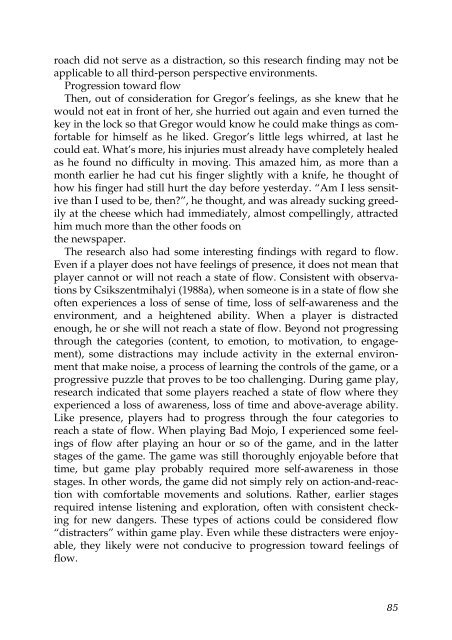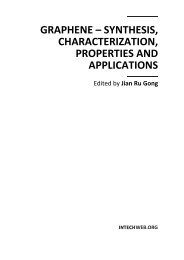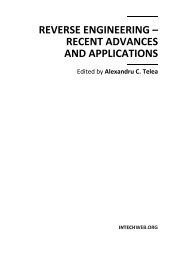Well Played 2.0: Video Games, Value and Meaning - OpenLibra
Well Played 2.0: Video Games, Value and Meaning - OpenLibra
Well Played 2.0: Video Games, Value and Meaning - OpenLibra
You also want an ePaper? Increase the reach of your titles
YUMPU automatically turns print PDFs into web optimized ePapers that Google loves.
oach did not serve as a distraction, so this research finding may not be<br />
applicable to all third-person perspective environments.<br />
Progression toward flow<br />
Then, out of consideration for Gregor’s feelings, as she knew that he<br />
would not eat in front of her, she hurried out again <strong>and</strong> even turned the<br />
key in the lock so that Gregor would know he could make things as comfortable<br />
for himself as he liked. Gregor’s little legs whirred, at last he<br />
could eat. What’s more, his injuries must already have completely healed<br />
as he found no difficulty in moving. This amazed him, as more than a<br />
month earlier he had cut his finger slightly with a knife, he thought of<br />
how his finger had still hurt the day before yesterday. “Am I less sensitive<br />
than I used to be, then?”, he thought, <strong>and</strong> was already sucking greedily<br />
at the cheese which had immediately, almost compellingly, attracted<br />
him much more than the other foods on<br />
the newspaper.<br />
The research also had some interesting findings with regard to flow.<br />
Even if a player does not have feelings of presence, it does not mean that<br />
player cannot or will not reach a state of flow. Consistent with observations<br />
by Csikszentmihalyi (1988a), when someone is in a state of flow she<br />
often experiences a loss of sense of time, loss of self-awareness <strong>and</strong> the<br />
environment, <strong>and</strong> a heightened ability. When a player is distracted<br />
enough, he or she will not reach a state of flow. Beyond not progressing<br />
through the categories (content, to emotion, to motivation, to engagement),<br />
some distractions may include activity in the external environment<br />
that make noise, a process of learning the controls of the game, or a<br />
progressive puzzle that proves to be too challenging. During game play,<br />
research indicated that some players reached a state of flow where they<br />
experienced a loss of awareness, loss of time <strong>and</strong> above-average ability.<br />
Like presence, players had to progress through the four categories to<br />
reach a state of flow. When playing Bad Mojo, I experienced some feelings<br />
of flow after playing an hour or so of the game, <strong>and</strong> in the latter<br />
stages of the game. The game was still thoroughly enjoyable before that<br />
time, but game play probably required more self-awareness in those<br />
stages. In other words, the game did not simply rely on action-<strong>and</strong>-reaction<br />
with comfortable movements <strong>and</strong> solutions. Rather, earlier stages<br />
required intense listening <strong>and</strong> exploration, often with consistent checking<br />
for new dangers. These types of actions could be considered flow<br />
“distracters” within game play. Even while these distracters were enjoyable,<br />
they likely were not conducive to progression toward feelings of<br />
flow.<br />
85

















